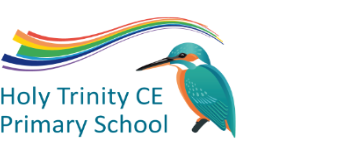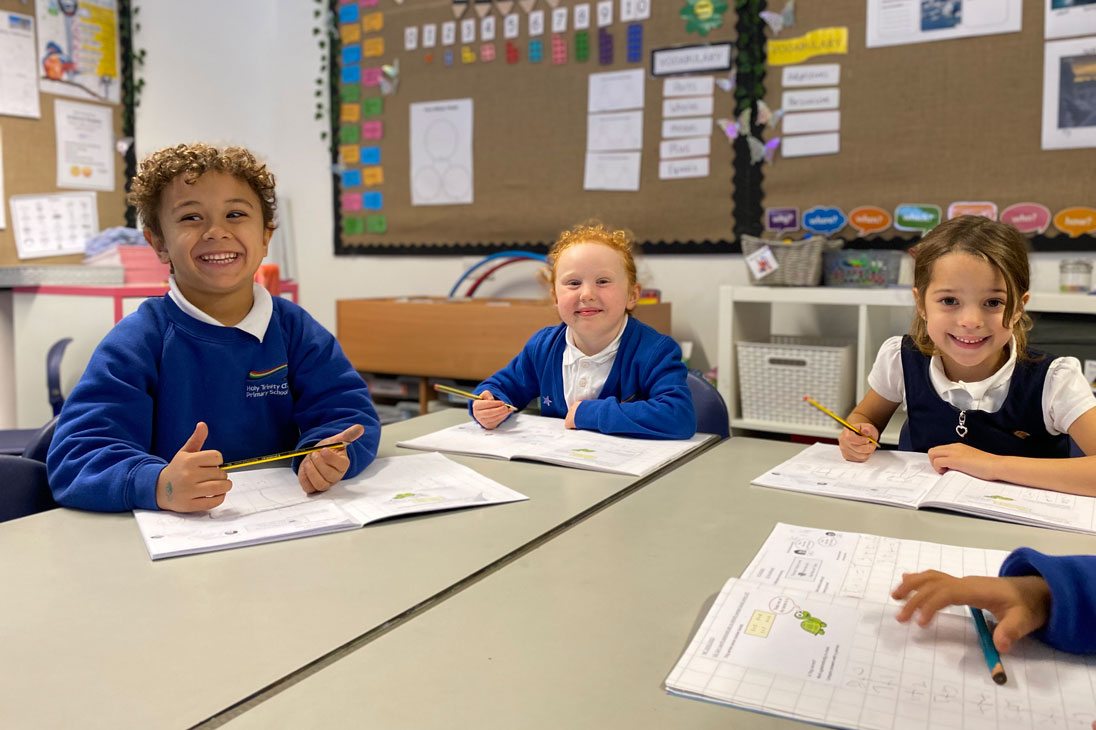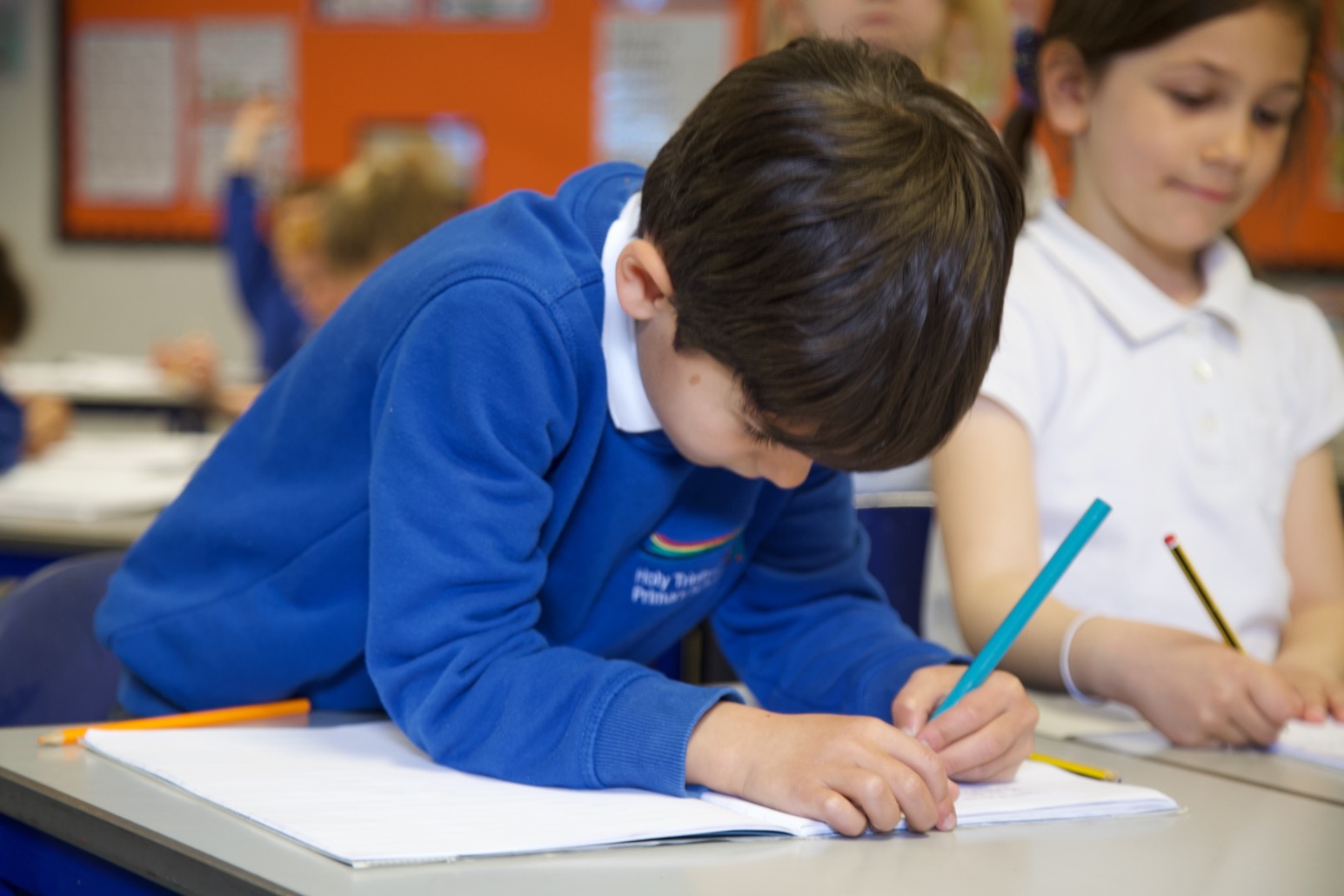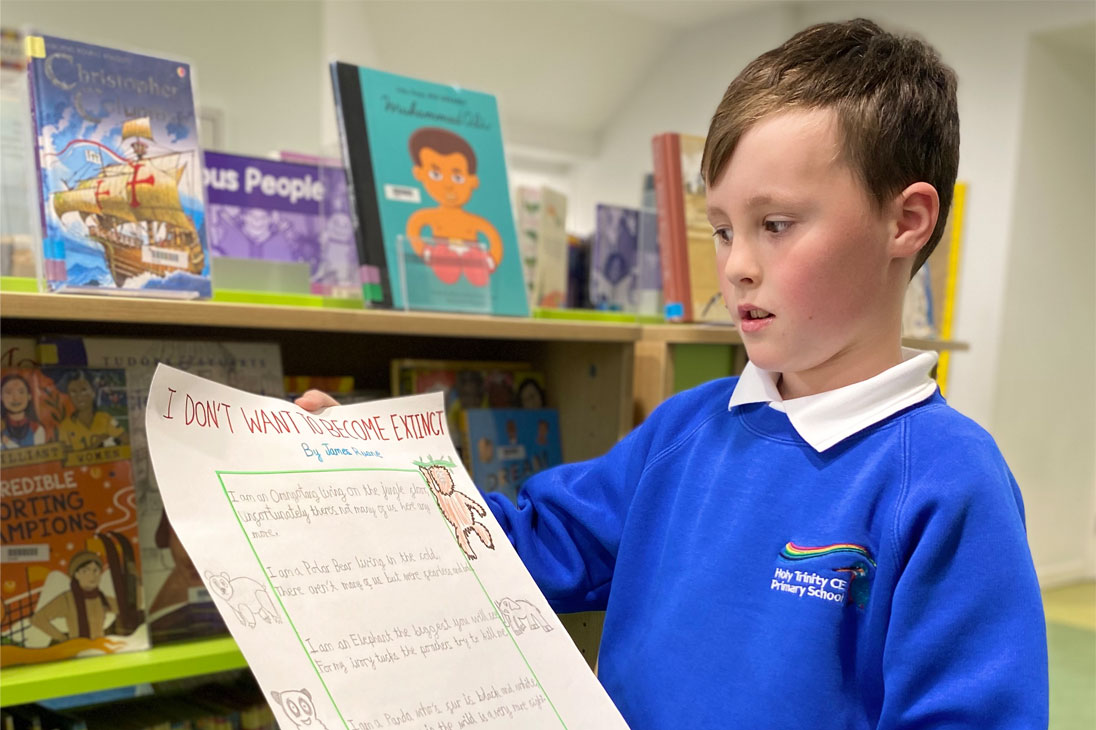Reading
At Holy Trinity C of E Primary School our intent is that all children will be inspired to develop a love of reading and to be able to read, enjoy and appreciate a wide variety of texts.
Our purpose is reading for meaning and enjoyment. We immerse children in a literary world through our text – rich reading curriculum, therefore creating strong levels of engagement to provide meaning and authentic contexts for primary English. Our children become critical readers as they encounter a wide-range of significant authors and a variety of fiction, non-fiction and poetry.Our aim is to develop fluency, expression and understanding of the text, as well as an enjoyment of books.
- Early reading and decoding skills are taught using the Read, Write, Inc. phonics programme
- We will deliver five reading sessions a week across all year groups, through either whole-class sessions or through smaller groups, during which children are taught reading skills of comprehension, inference, understanding of vocabulary, etc.
- Children will be read to everyday.
- Children are heard to read at least once a week throughout the school.
- Those children who are not at their age related expectations will have interventions and be guided through the ‘Fresh Start’ RWI programme to help them reach their targets.
- Each classroom has their own reading corner with a selection of books which children have access to. Children are encouraged to access high quality texts, which they also take home with them.
- We foster a love of reading through extra-curricular activities such as@ HT Readers Programme, SPARK! Book Awards, Barnes Literature Festival, World Book Day and Scholastic Travelling book fairs, plus many more exciting and engaging experiences.
Our woodland-themed library is located on the ground floor. It is a calm, inviting environment that promotes the love of reading for pleasure, with areas for small teaching groups and an extensive range of high-quality texts spanning a range of genres. We have different library areas which cater for EYFS, Key Stage 1 and Key Stage 2. It is open regularly throughout the week for the children to visit.
A strong reading profile is evident throughout the school, showcasing life-long lovers of reading. Children will have high expectations of themselves and experience pride, joy and sense of achievement when reading.
- Children read for meaning, with fluency, expression and use their phonics skills to segment and blend. They have developed a value and love of reading which will be evident across all subjects.
- The quality and breadth of learning is evidenced in all the children’s learning journals and extended writing books.
- Children participate with enthusiasm and commitment in enrichment clubs, school competitions, national challenges and our school writing scheme.
- Assessment procedures which allow us to measure outcomes against schools locally and nationally, and continually review and improve our practise.
Writing
At Holy Trinity Primary School, we inspire our pupils to think and write innovatively, to be brave with their use of language, and write with clear purpose and pleasure. We aim for all children to see themselves as a writer. We believe it is important for our pupils’ futures to be able to write confidently in all contexts, so we create opportunities for children to develop a life-long love of writing, through an inclusive, diverse and creative writing curriculum. Our pupils develop spoken language through debate, drama and discussion about the issues raised in the texts. As a school, we value how our text choices can help expand our pupils’ knowledge beyond their immediate experiences and inspire their writing.
We follow ‘The Write Stuff’ published scheme of work, from Reception through to Year 6. ‘The Write Stuff’ is the work of the teacher, author and education consultant Jane Considine. ‘The Write Stuff’ brings clarity to the mechanics of writing and provides clear systems through which to focus the writer’s attention.
- We deliver five weekly writing sessions through which we provide meaningful writing opportunities that allow pupils to write for different purposes and audiences.
- The lessons focus on different types of texts: fiction, non-fiction and poetry. There will be a variety of books used, including picture books, from Reception up to Year 6.
- Children will have opportunities to write at length but to also complete shorter writing tasks, incorporating the skills they have developed, grammar, spelling and punctuation.
- The writing tasks will have a focus on thinking about who the audience is and what the purpose of the task is. They will be meaningful and cover a range of genres such as, but not limited to: a story, diary entry, newspaper article, persuasive argument and a letter.
- Creating a vocabulary-rich learning environment is important for our school community. We know that unlocking new words and language opens doors for future learning and life experiences. Frequent visits, trips out of school and new topic hooks provide valuable stimuli for the learning of new vocabulary and writing ideas.
- Children will be taught how to edit their work before it is marked.
To discover more about ‘The Write Stuff’ approach to writing, please click here: The Write Stuff
By the end of Year 6, children will be able to write clearly and accurately and adapt their language and style in and for a range of contexts, purposes and audiences. Our pupils will acquire a wide vocabulary and have a strong command of the written word. Most importantly, they will develop a strong sense of joy for writing, become confident writers throughout their journey and be well equipped for the next stage of their education.
Spelling
At Holy Trinity Primary School, we inspire our pupils to think and write innovatively, to be brave with their use of language, and write with clear purpose and pleasure. In order for these aims to be realised, it is essential that our pupils learn the knowledge and skills to spell accurately. Children who can spell feel confident and are able to write with satisfaction. We want our pupils to be equipped with the knowledge and range of strategies for learning to spell and to be able to apply their strategies when spelling words in their independent writing. We want to provide our pupils with opportunities to explore and investigate the English language.
Building on the Read, Write, Inc. provision for phonics in EYFS and KS1, children in year groups 3 – 6 are taught the national spelling curriculum using the Read Write Inc. spelling programme. This version has been adapted to suit the needs of the children at Holy Trinity Primary School. With the Read Write Inc. approach to the teaching of spellings we support and encourage children to become both confident and independent spellers which will help them to become better writers.
Our English curriculum provides many purposeful opportunities for spelling development. As children progress from RWI Phonics they begin to engage in RWI Spelling from spring of Year 2 through to Year 6 focussing on the National Curriculum spelling objectives. The spelling curriculum is mapped so that all rules and words are taught across cycle one then within cycle two, all rules are revisited to ensure they are embedded. Revisiting spelling patterns and rules regularly is key to them becoming successful spellers. Furthermore, regular consolidation sessions allow teachers and children to review previously taught spelling rules in a different context. Regular assessment opportunities take place across the year.
Our pupils acquire the knowledge and learn the skills to apply their spelling skills to a variety of purposes in a range of cross-curricular contexts. Our pupils are encouraged to think creatively, be adventurous with their use of language, and write with a clear purpose.
Please click here for the RWI Spelling Scheme overview on the Ruth Miskin website.
Children are assessed through spelling tests and the end of KS2 SATS examinations. Outcomes of written work further evidence the children’s confidence and accuracy in spelling across the school, alongside closed spelling tasks which test children’s knowledge and how well the spelling rules are embedded.
When spelling, our pupils:
- Use their phonic skills effectively when blending phonemes for reading and when segmenting phonemes for spelling.
- Have an interest in words, their meanings and their origins, developing a growing vocabulary both for speaking and writing.
- Write with confidence and creativity, while developing the skills to self-edit, correct and improve.
- Are encouraged to be imaginative, creative and challenge themselves
Handwriting
At Holy Trinity, we expect children to take pride in the presentation of their written work so we ensure that they are taught to have a neat, fluent and cursive handwriting style.
We will deliver five weekly sessions beginning in the Early Years with early writing skills activities such as tracing letters and forming letters in shaving foam. We will progress onto our cursive script that prepares children to join their handwriting once they have developed their fine motor skills.
- In EYFS, children will follow the Read Write Inc letter formations and begin with early mark making progressing onto letters
- In KS1, children will be taught the cursive lead in and formation of capital letters
- In KS2, children will be taught both the lead in and out and confidently join their handwriting. Once this is neat and fluent children will receive a pen licence
- Those who require further support will be placed in handwriting intervention groups to build their skill and stamina
- Throughout the school, teachers will model and remind children of the handwriting style expected in their key stage through their marking, when writing on the board and on displays around the school
By Year 6, children’s handwriting will be clear, accurate and formed using the cursive script. This will be monitored by teachers when books are marked and within daily handwriting lessons. If the children take pride in their presentation it follows that they will take pride in the content and quality of their work.







